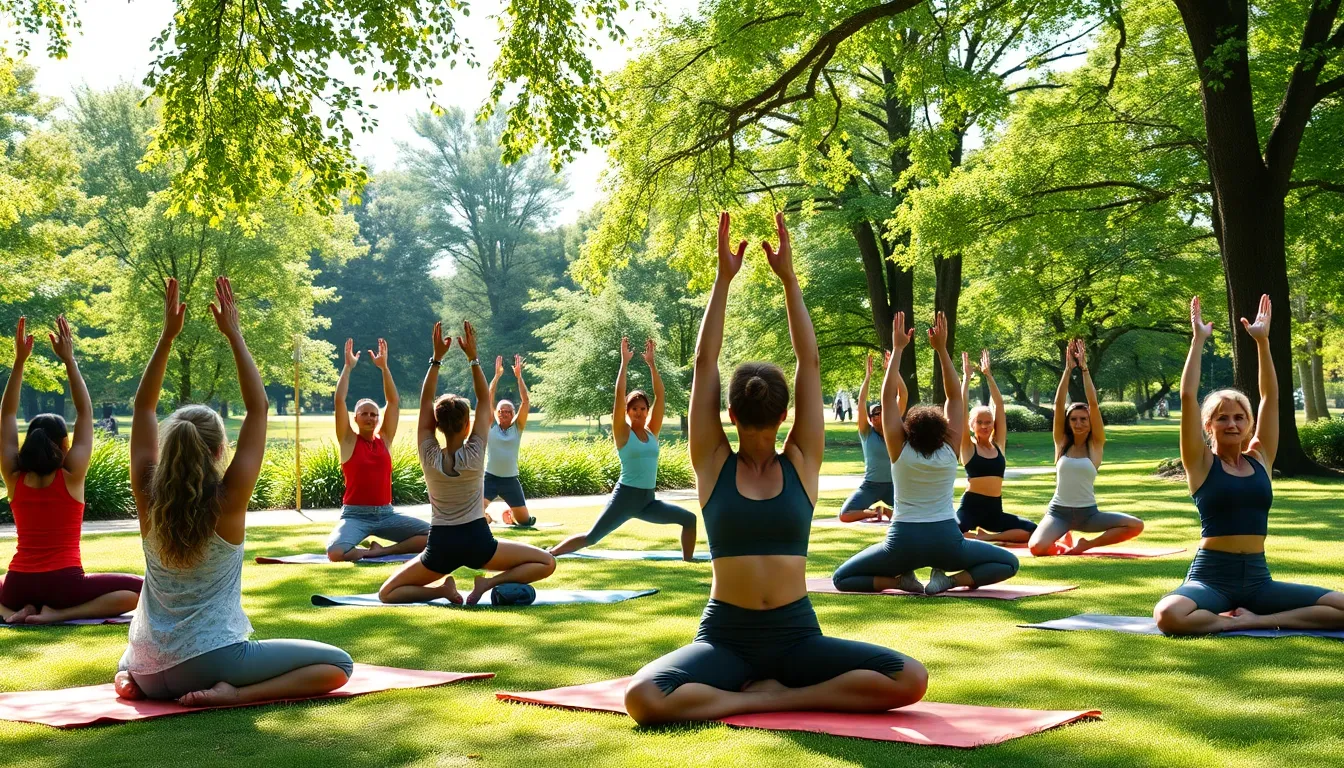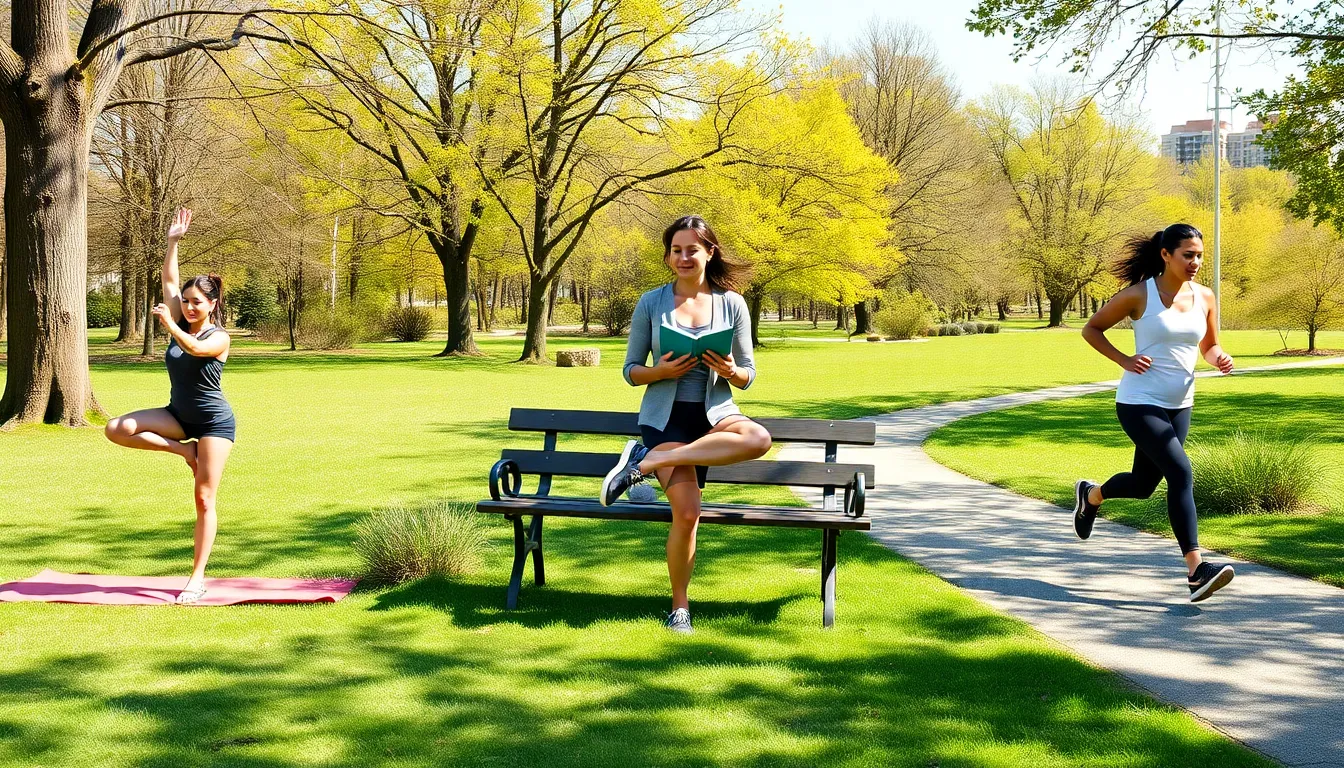In a world that often feels like a circus on roller skates, finding balance can seem impossible. Between juggling work, family, and that ever-growing list of chores, it’s no wonder many feel like they’re one coffee spill away from chaos. But fear not! The secret to a harmonious life lies in the magic of routines.
Table of Contents
ToggleUnderstanding Balance
Achieving balance involves coordinating various aspects of life. Work, personal relationships, and self-care require equal attention. Distractions often challenge this equilibrium, making routines essential for maintaining focus.
Effective routines help manage time efficiently. Time management increases productivity and reduces stress. Prioritizing tasks leads to a greater sense of accomplishment and control.
Self-awareness plays a crucial role in recognizing areas needing improvement. Individuals can assess their commitments to identify unbalanced aspects. Establishing clear boundaries between professional duties and personal time fosters a healthier lifestyle.
Incorporating regular physical activity benefits both physical and mental health. Exercise releases endorphins, contributing to overall well-being. It also creates a productive outlet for stress relief. Mindfulness practices, such as meditation and deep breathing, enhance mental clarity and emotional resilience.
Maintaining social connections supports emotional balance. Engaging with friends and family nurtures a sense of belonging. Regular interactions cultivate positive relationships, reducing feelings of isolation.
Flexibility within routines encourages adaptability in the face of change. Adjusting schedules to accommodate unexpected events helps prevent overwhelm. Resilience strengthens as individuals navigate life’s ups and downs with confidence.
Establishing consistent sleep patterns is also fundamental. Quality sleep impacts mood and cognitive function. Prioritizing rest enhances overall performance across all daily activities.
Focus on developing personalized routines tailored to individual needs. Analyze what works best for specific lifestyles, adapting strategies to optimize balance. With commitment and intentionality, achieving harmony in daily life is possible.
Importance of Routines for Balance


Routines play a significant role in achieving balance across various life aspects. They provide structure and consistency, making it easier to manage responsibilities effectively.
Physical Balance Routines
Engaging in regular physical activities strengthens overall well-being. Practices like yoga or pilates enhance flexibility and stability. Incorporating strength training exercises builds muscle and improves body alignment. Daily walks or recreational sports contribute to cardiovascular health while promoting mindfulness. Tracking physical activity also helps reinforce commitment to fitness goals. Scheduled workouts create a sense of accountability and motivate individuals to stay active.
Mental Balance Routines
Implementing mental balance routines boosts cognitive function and emotional resilience. Daily meditation or mindfulness exercises reduce stress and enhance focus. Journaling promotes self-reflection, helping individuals articulate thoughts and feelings. Reading or engaging in creative hobbies stimulates the mind and encourages imaginative thinking. Prioritizing downtime allows for mental rest and rejuvenation. Incorporating technology-free periods fosters deeper connections with oneself and others.
Creating Your Daily Routine
Establishing a daily routine enhances balance amidst life’s demands. A structured approach can guide individuals in managing their responsibilities effectively.
Morning Routines
Morning routines set a positive tone for the day. Engaging in physical activity stimulates energy levels and boosts mood. Incorporating mindfulness practices, such as meditation or deep breathing, promotes mental clarity. Prioritizing a healthy breakfast fuels the body and mind for optimal performance. Setting specific goals for the day fosters focus. Dedicating time for personal reflection, like journaling, encourages self-awareness and intention. Consistency in morning routines amplifies their benefits, creating a sense of stability amidst chaos.
Evening Routines
Evening routines provide a necessary transition from a busy day to restful relaxation. Dimming lights around the home signals the brain that it’s time to wind down. Engaging in light physical activities or stretching can relieve tension accumulated throughout the day. Prioritizing screen-free time aids in reducing digital distractions and improving sleep quality. Reflecting on the day through journaling helps acknowledge accomplishments and areas for improvement. Consistent bedtime rituals, such as reading a book or taking a warm bath, signal the body to prepare for rest. Emphasizing these routines contributes to more restorative sleep and balanced emotional health.
Tips for Maintaining Balance
Maintaining balance requires intentional strategies. Implementing effective routines plays a crucial role in this process.
Consistency is Key
Maintaining consistency in daily routines enhances the ability to manage stress and responsibilities. Regular practices create stability, leading to improved time management. Prioritizing specific activities, such as morning exercises or evening wind-downs, fosters a structured lifestyle. Incorporating these routines daily reinforces the commitment to an organized life. Individuals notice more productivity and less chaos when their routines remain consistent. Prioritize essential tasks within these frameworks to achieve stronger results. Consistency cultivates habits that promote overall well-being and emotional stability.
Listening to Your Body
Listening to one’s body is essential for achieving balance. Recognizing physical and mental signals aids in adjusting routines as needed. Fatigue may indicate the necessity for more rest, while stress could prompt a need for mindfulness practices. Individuals should incorporate breaks and relaxation techniques throughout their day to maintain health. Regular self-checks on energy levels or emotions can enhance awareness of personal needs. Appropriate adjustments to routines based on these signals optimize health outcomes. Ultimately, individuals thrive by aligning their actions with their body’s needs, creating a sustainable path to balance.
Achieving balance in life is an ongoing journey that requires commitment and intentionality. By implementing effective routines, individuals can navigate daily challenges with greater ease. These routines not only enhance productivity but also foster emotional and physical well-being.
Prioritizing self-awareness and setting clear boundaries can lead to a healthier lifestyle. Incorporating regular physical activity and mindfulness practices further supports this balance. Ultimately, personalized routines tailored to individual needs create a sustainable path toward harmony amidst life’s demands. With dedication and flexibility, anyone can cultivate a sense of balance that enriches their daily experience.

